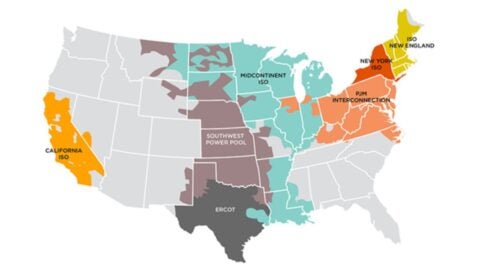Climate News: Carbon Sinks and Record-Breaking Heat
Three stories caught my eye this week. The first study adjusts earlier estimates of carbon uptake by land plants. In the other two articles, scientists document the biological effects of Europe’s record-breaking temperatures, and estimate the risk of severe Mediterranean heat waves due to global warming.
- Stephens, et al. 2007. Weak Northern and Strong Tropical Land Carbon Uptake from Vertical Profiles of Atmospheric CO2. Science 316: 1732 – 1735.
- New measurements and analyses suggest that northern hemisphere ecosystems take up less carbon than previously thought. It was also found that undisturbed tropical forests take up more carbon than scientists had earlier estimated.
- Luterbacher, et al. 2007. Exceptional European warmth of autumn 2006 and winter 2007: Historical context, the underlying dynamics, and its phenological impacts. Geophysical Research Letters 34: L12704.
- Autumn 2006 and Winter 2007 appear to be Europe’s warmest in at least 500 years. The heat had strong effects on plant flowering times, with many species blooming far earlier and/or longer than usual. (For more on global warming and lifecycle timing, see this earlier post.)
- Diffenbaugh, et al. 2007. Heat stress intensification in the Mediterranean climate change hotspot. Geophysical Research Letters 34: L11706.
- Climate models indicate that global warming has increased the risk of extreme heat waves in the Mediterranean by 200 to 500 percent. The authors emphasize that "emissions reductions could reduce the risk of increased heat stress in the coming decades".













2 Comments
Global warming is taking place at the same rate on all the other planets in our solar system. This is a proven fact! In other words, global warming is not caused by man.
Ed, you’re making an incorrect statement with no references to back it up. Here’s a post Bill wrote on so-called “Extraterrestrial Global Warming“. It’s well-documented with references so you can check all the facts.